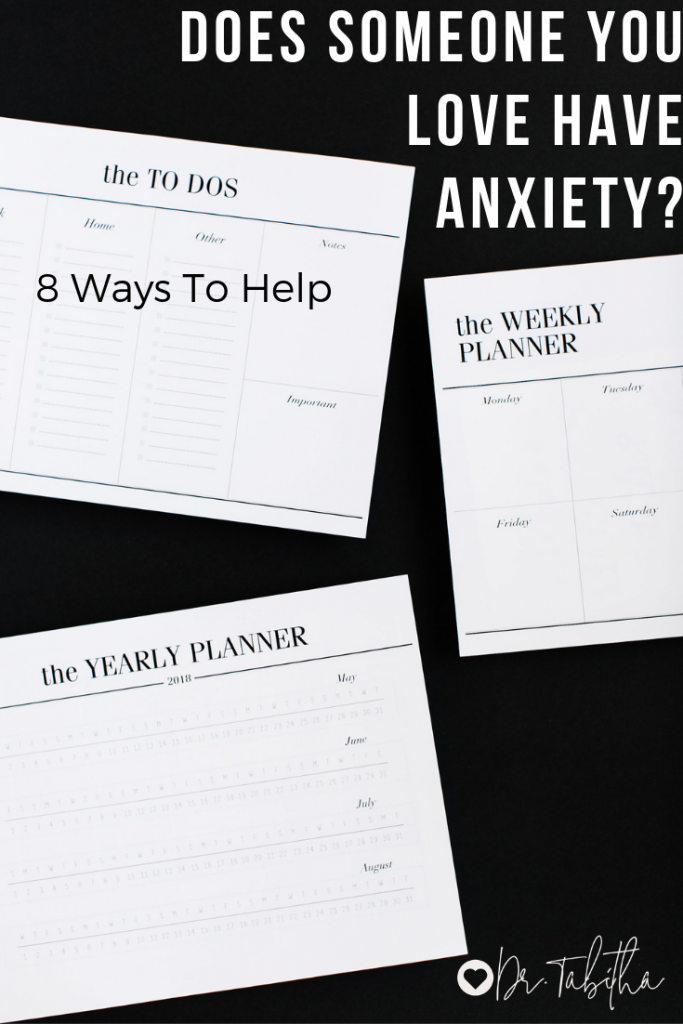
Most of us know what anxiety feels like or have loved someone with anxiety. If you have anxiety, you know exactly what it feels like. If you think you’ve never experienced anxiety you can probably imagine how you would feel waiting for an important call, when your phone battery is at 5% and you’re away from home where you left your charger. I’m sure you’ve experienced the heart drop and nervous sweating when a police officer pulls out behind you and you realize you are speeding. Get the picture? What if you felt that feeling more than just occasionally? What if you felt that way everyday?
According to Brain & Behavior Research Center, 18% of adults in the U.S. have an anxiety disorder. That statistic translates to 1 out of 13 people. That means if it’s not you, it’s almost certainly someone you know. Empathizing with something you may not understand can be difficult so we’ve complied a list of Do’s and Don’ts on how to help someone with anxiety.
DO express your willingness to learn and understand.
Anxiety manifests itself in a lot of different symptoms so showing a willingness to learn about what your loved one is experiencing can help them feel supported and cared for.
DON’T force them to talk about it.
Sometimes just mentioning the word anxiety is enough for that person to start feeling the effects. Pressuring someone to talk about it may have the opposite effect you intended, they may shut down even more. If you want to help someone with anxiety, let them talk about it on their terms.
DO be available.
Be ready to listen when they do want to talk. Use that time to better understand what you can do when they are experiencing anxiety.
DON’T lose patience.
Anxiety is often a long, difficult road. Having anxiety isn’t the same thing as just feeling nervous, afraid or worried. Anxiety can sometimes occur with no specific trigger or “reason.” It is important to be patient with the process and know even after moments of improvement, they aren’t “cured.”
DO be proud of the moments they conquer worries and fears.
Even small steps in the right direction or the simplest tasks can give them anxiety so celebrate the moments when they are successful. Those seemingly small victories are crucial steps to managing anxiety and when you want to help someone with anxiety.
DON’T ever say, “get over it.”
Don’t minimize what your loved one is experiencing. The fear of getting on the subway or the pressure of having a long to-do list may seem like no big deal to you but for them, it can feel unbearable. Gently encourage them but stay patient in moments when your plans might have to change so they can feel more comfortable.
DO recognize the symptoms.
Anxiety can cause a variety of problems physically, mentally, emotionally, and behaviorally. Some symptoms can be seen – fidgeting, nail biting, sweating, difficulty breathing while other symptoms may be invisible to you – rapid heartbeat, feelings of overwhelm, panic or feeling frozen. Try to learn the ways your loved one is typically affected and ask what you can do to help them in those moments.
DON’T change who you are.
Learning about anxiety and making efforts to understand your partner are great goals. However, changing who you are or suddenly acting like your loved one’s doctor will only put pressure on your loved one could result in them feeling even more anxious.
If you’ve read this far, it’s likely you’ve identified someone you care about who struggles with anxiety. Remember, one of the best things you can do to help someone with anxiety is be there for them. Enjoying the times you have together, listening, laughing, playing, encouraging, and loving them can be very helpful.
If you or someone you love is struggling with anxiety, this team of highly trained therapists specialize in helping clients understand how their anxiety impacts themselves and their relationships along with practical ways to manage their anxiety – and they can help you too. Click here to schedule your appointment today.






Leave a Reply
Your email is safe with us.